2018-2019 ASPB Conviron Scholars Program Highlights
The ASPB Conviron Scholars program serves as a foundation for a career in plant science. The scholarship consists of the four major themes:
Career Planning, Writing and Communications, Leadership, and Effective Presentations
Within each theme, the participants read collections of articles, attended webinars, and completed assignments within a private Plantae Network. The assignments required the scholars to learn new skills in writing, designing, presenting, and communicating and to bring in creative ideas into the motivational environment.
For the 2018-2019 program, a total of 40 students were chosen to participate in program from around the world. We have asked six of them to talk about their experiences.
Introduction to the program
Will Hinckley, a fourth-year undergraduate at California State University, Long Beach, studies the regulation of age-dependent leaf senescence in Arabidopsis thaliana.
He was mentored by Dr. Mary Tierney from the University of Vermont.
He says, “My mentor suggested a new CV format which makes it look SO much more professional. She is currently giving me advice on the process of publishing, as I am wanting to start piecing together a manuscript. She has been a great help!”
As part of the scholarship, he interviewed Dr. Yannick Jacob at Yale University studying histone variants in Arabidopsis. He wrote a blog titled “GMOs: The Modern-Day Frankenstein?” and as an independent project, he created a series of infographics describing GMO safety for the public.
He recorded his presentation “Deciphering the molecular connection between flowering time and leaf senescence in Arabidopsis thaliana” which he gave as part of CSULB student research competition.
Catherine Freed, a second year Ph.D student at Virginia Polytechnic Institute and State University, is studying the impact on how plants sense and respond to inorganic phosphate stress.
She was mentored by Dr. Aaron Wyman, a professor at Spring Arbor University.
She says, “He has been nothing but helpful in sharing his life experiences and passion for teaching with me. I sincerely appreciate all of the time he has taken to review my CV and give advice for improving my writing for grant and scholarship applications. I’m grateful for Aaron’s great mentorship and advice!“
She carried out her informational interview with Dr. Mary Williams, Features Editor of the journal The Plant Cell. She wrote a blog article “Expanding our genetic toolbox” and she rewrote her abstract titled “Use of Silicon Rubber Casts to Delineate Metabolic and Environmental Factors Altering Stomatal Aperture” after the second writing workshop.
She made a fantastic animation on plant nutrition and illustrated infographics for the Fascination of Plant Day.
“Another interest of mine is definitely extension/outreach. I would like to do this in combination with my future research career in order to keep farmers, other scientists, and non scientists up to date with the latest technologies and discoveries made in laboratories.”
Daisy Dobrijevic is a second year Ph.D student at the University of Nottingham and as part of her research, she is looking at the physiological effects of relative humidity on maize and wheat from a whole plant perspective.
She was mentored by Dr. Natalie Henkhaus, the Executive Coordinator for the Plant Science Research Network at ASPB.
“It was nice to talk to someone outside of my university who has a wealth of knowledge that could be of great use to me. She also had some useful advice on contacts regarding my independent project and also a work experience programme I am required to take part in during my PhD. I look forward to speaking to her again!”
She interviewed Dr. Kathryn Rose Brian, Pesticide Regulatory Specialist at the Health and Safety Executive, and designed the interview in a magazine-style.
She wrote two blog articles, one on Coral Conservation The Tides are Changing and For better or for Worse: Relationship between Plants and Humidity and recorded a presentation on Plant Responses to Relative Humidity.
As part of her independent project, she worked with the National Space Centre in the UK and produced a video, an infographic, and a blog post for the public.
She shared her career plans, “Ultimately, I wish to pursue a career in Science Communications. I believe the public needs to be educated on issues facing the plant science world e.g. drought, food security, pests, GM etc so we can influence the next generation of scientists and researchers!”.
Ruth (Jean Ae) Kim is a second-year Ph.D. student at the University of California, Riverside, researching light and temperature response in plants. Her project involves the use of molecular and cellular biology techniques to elucidate the function of nuclear bodies called “photobodies” and how they regulate thermomorphogenesis in plants.
She was mentored by Dr. Margaret Frank from Cornell University.
She says, “It was great to hear that she was coming to visit UC Riverside in January. I met with her in person on campus and we grabbed a coffee and I was able to catch up with her and talk about things we enjoyed and also received advice about my research. She talked to me about the importance of networking even online like Twitter and meeting people at conferences and how it was something she really enjoyed. I’m very thankful to have a mentor like her through this program.”
As part of her information interview, she talked to Dr. Robert Jinkerson is an Assistant Professor at UC Riverside. She wrote an abstract for her publication, titled “light-regulated gene repositioning in Arabidopsis” and talked about her research in a recorded presentation.
She also wrote a blog article titled “What does gene editing look like today?” and drew the Plant Girl Comic to make plant biology accessible from young children to young adults in a fun way.
“For the second chapter, I wanted to reflect interesting and diverse traits about plants as Plant Girl embarks on her adventure to different ecosystems and encounters different plants. A theme that I also wanted to include in this comic is loneliness and friendship. Plant Girl knows she is different from most other plants and wants to explore the world to see if there is anyone else like her. She hopes to make friends with other plants but it’s difficult. I had a lot of fun making this and I plan on making more adventures for Plant Girl!“
Emmanuel lwuala, a Ph.D student in University of Lagos, works on the characterization of genes in two cereal crops, maize and pearl millet, under a simulated drought condition.
He was mentored by Professor Hua Lu from the University of Maryland, Baltimore County.
He says, “I had a positive conversation via email with my mentor Hua. Firstly, she gave me a good insight on a new way to write my Cv. Secondly, l had questions on how to write effectively and have collaborations, and l am effectively putting all she said into practice. It has been a great experience with my mentor.”
He interviewed Dr. Modinat Adekoya, a Plant Breeder at the Federal University Oye Ekiti, Nigeria and he wrote a blog article on Gene Editing. He videoed a laboratory practical with two undergraduate students on chlorophyll extraction as his independent project.
He talked about his career plans, “I have interest in research and innovation. I love research in crop improvement and using molecular tools for breeding. In the long run, l will like to be in government to formulate policies and regulation in food and crop improvement.”
In a blog article on the ‘Facet of Plant Science’ he wrote:
“The participation with American Society of Plant Biologist Scholars program will broaden the knowledge and understanding concerning different aspects of plant science.”
Iwala’s feedback on the ASPB Conviron Scholars Program (Audio)
Alex Clarke, a first year Ph.D student at Cornell University, researches the epidemiology and plant-insect-virus interactions of grapevine red blotch disease.
He was mentored by Dr. Miguel Vega Sanchez, Regulatory Affairs Pipeline Strategy Manager at Bayer.
He says, “Miguel gave me a lot of insight into what it is like to get started in an industry research position. He also gave me some valuable pointers for improving my CV that should come in handy in the near future. Overall I have had a very positive experience with the mentoring program!”
He also carried out the informational interview with Dr. Robert Gaeta, who currently leads the Applied Molecular Biology team in Plant Biotechnology at Bayer.
As part of his independent project, he interviewed five plant virologists at various institutions across the US about their thoughts on the field of plant virology, the most important plant viruses today, important technologies and also where this field is headed.
“Hopefully readers take away from this some information about plant viruses as well as the knowledge that researchers are approachable and happy to chat about their science!”
He wrote a blog post on “Gene Editing: Not as Scary as it Sounds” and recorded a presentation on his research on Grapevine red blotch virus.
“The ASPB Conviron Scholars program provided me with excellent communication practice and the opportunity to make connections with mentors in the field that I will pursue a career in. I highly recommend this program for other students in the plant sciences, particularly those who are early in their educational path.”
Read more about 40 awardees here: https://aspb.org/awards-funding/aspb-awards/aspb-conviron-scholars-program/awardees-2/


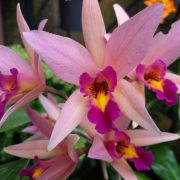
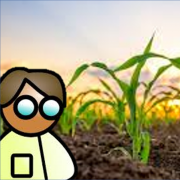
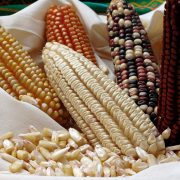
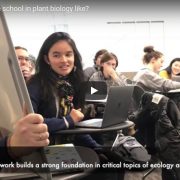
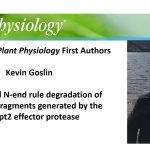
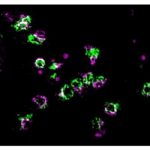
Leave a Reply
Want to join the discussion?Feel free to contribute!